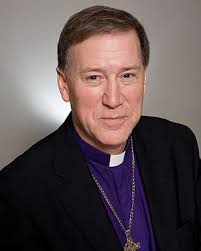
Last night Anglican Primate Fred Hiltz led a bible study for the convention on Luke 4: 16-21. He broke it down into 3 parts: Continuity, Hope, and Partnership. Then he asked that we reflect on these questions:
“Today, this scripture has been fulfilled in your hearing.” (Lk 4:21) Discuss some signs of hope whereby you see this scripture fulfilled in your local context:
- your parish
- your synod
From the perspective of our Full Communion relationship with the Anglican Church of Canada, discuss some hopes you have for ways by which our churches could work together in the spirit of this scripture.
What bold steps would you like to see our churches take in the spirit of this scripture?
I’ve said this before, but I think our relationships with other Christians happen, not because we’ve signed a special document, but because our people drink coffee with the folks from the church down the street. Whatever “bold steps” need to be taken have to happen at the local level. Otherwise this relationship doesn’t go beyond the hierarchy, and is therefore, somewhat meaningless.
The relationship with the Anglicans have brought about some (in my view) unwelcome changes to our ELCIC practice. Most specifically, the decision to stop licensing laypeople for sacramental ministry - even in areas where having a pastor is unworkable. So, these folks are denied the sacraments because of the influence of the Anglicans. In a time of the decline of clergy numbers, do we really want to go down this road?
On the Anglican side, I know that some clergy struggle with the Lutheran insistence on justification by faith ALONE. Many see us (and, at times, quite rightly) as theological pitbulls.
Full Communion is not all sweetness and joy. It’s becoming about how to live with tensions between two similar, but different church families. But that’s the challenge of Christian unity.
No comments:
Post a Comment